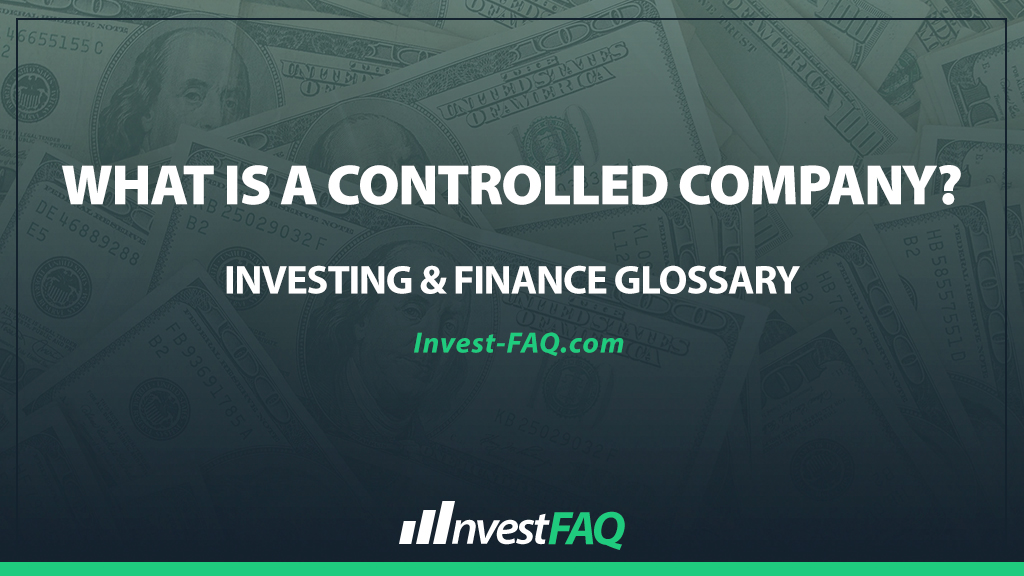
Controlled Company
Contents
A controlled company is a business entity in which a significant portion of its voting stock is held by a single investor, family, or small group of investors, granting them substantial influence or outright control over corporate decisions. This control often translates into the ability to direct business operations, financial strategies, and governance policies.
In the business landscape, controlled companies are common in both public and private sectors. They stand out for their ability to make swift decisions, driven by the concentrated ownership’s unified vision and interests.
This can be particularly advantageous in industries where rapid innovation or strategic pivoting is necessary. However, it also raises questions about minority shareholder rights and corporate governance.
Example of a Controlled Company
Imagine “UVW Tech Corp,” a publicly-traded company where 60% of the voting stock is owned by the founder and her family. Despite the company’s public status, the family’s controlling interest allows them to make significant decisions without needing to gain approval from the majority of shareholders.
For instance, they decide to acquire a smaller competitor for $200 million, a strategic move they believe will position the company more competitively.
In the case of UVW Tech Corp, the controlling interest held by the founder and her family means that their vote is decisive in major corporate decisions, such as acquisitions.
This level of control enables them to execute strategic moves more swiftly than if they had to negotiate with a wider pool of shareholders. However, it also means that minority shareholders have limited power to influence these decisions, highlighting a potential governance concern where the interests of the controlling and minority shareholders may not always align.
Types and Uses in Business Scenarios
Controlled companies can be found across various scenarios, including:
Family-Owned Businesses: Where generations control strategic direction.
Startups and Tech Companies: Founders often retain control to safeguard the company’s vision and agility.
Conglomerates: A parent company controls subsidiaries across different industries.
Private Equity: Investment firms hold controlling interests in their portfolio companies.
These entities leverage their control to implement long-term strategies, undertake significant mergers and acquisitions, or innovate without the pressure of immediate shareholder returns.
Significance for Investing & Finance
The concept of a controlled company holds significant implications in accounting and financial reporting:
Transparency and Disclosure: Controlled companies are often subject to specific disclosure requirements about the nature of control and its implications for governance.
Minority Interests: Accounting for minority interests in controlled companies requires careful consideration, as these interests may not have a proportional influence on the company’s strategy or financial decisions.
Valuation: The valuation of controlled companies can be complex, as the controlling interest may command a premium, and the liquidity of shares might be affected by the concentration of ownership.
In summary, a controlled company is characterized by its concentrated ownership, which can drive efficient decision-making and strategic agility.
However, this control structure presents unique challenges and considerations for corporate governance, shareholder rights, and accounting practices, emphasizing the need for transparency and fair treatment of minority shareholders.
FAQ
What distinguishes a controlled company from other public companies?
A controlled company differs from other public companies in that a single entity, individual, or family holds enough voting shares to influence or control decisions, bypassing the need for broader shareholder consensus.
Minority shareholders in a controlled company may have limited influence on corporate governance and decision-making, as the controlling shareholders have the power to direct company actions and policies.
Are there any governance exemptions for controlled companies listed on stock exchanges?
Yes, controlled companies listed on some stock exchanges may be exempt from certain corporate governance requirements, such as the obligation to have a majority of independent directors on their board.
Can a controlled company still be considered publicly traded?
Yes, a controlled company can be publicly traded on stock exchanges, despite a significant portion of its voting power being held by a single investor or group, allowing public investors to buy and sell its shares.
